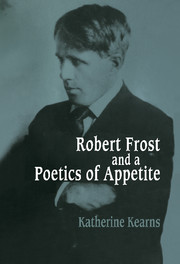Book contents
- Frontmatter
- Contents
- Acknowledgments
- Introduction: The Serpent's Tail
- 1 Irony: Teiresias's Gaze
- 2 Irony II: This Is Not a Pipe
- 3 Women: Dryads, Witches, and Hill Wives
- 4 Eros: The Mischief Maker
- 5 Prosody: White Noise
- 6 Lyricism: At the Back of the North Wind
- Conclusion: Out Far and in Deep
- Notes
- Index
- CAMBRIDGE STUDIES IN AMERICAN LITERATURE AND CULTURE
6 - Lyricism: At the Back of the North Wind
Published online by Cambridge University Press: 19 March 2010
- Frontmatter
- Contents
- Acknowledgments
- Introduction: The Serpent's Tail
- 1 Irony: Teiresias's Gaze
- 2 Irony II: This Is Not a Pipe
- 3 Women: Dryads, Witches, and Hill Wives
- 4 Eros: The Mischief Maker
- 5 Prosody: White Noise
- 6 Lyricism: At the Back of the North Wind
- Conclusion: Out Far and in Deep
- Notes
- Index
- CAMBRIDGE STUDIES IN AMERICAN LITERATURE AND CULTURE
Summary
I'm not here to make exorbitant claims for poetry, lest they seem personal, but one thing must be said about poetry – it's the ultimate. The nearest thing to it is penultimate, even religion. Poetry is the thoughts of the heart…. It's a thought-felt thing. Poetry is the thing that laughs and cries about everything as it's going on – and makes you take it.
Robert Frost, in Thompson, Robert Frost: The Later Years 238A poet is a person who thinks there is something special about a poet and about his loving one unattainable woman. You'll usually find he takes the physical out on whores. I am defining a romantic poet – and there is no other kind. An unromantic poet is a self-contradiction like the democratic aristocrat that reads the Atlantic Monthly. Ink, mink, pepper, stink, I, am, out! I am not a poet. What am I then? Not a farmer – never was – never said I was.
Robert Frost, in Thompson, Robert Frost: The Years of Triumph 381In Frost's poetry the birds never seem to fly very high, and when they do take flight they risk being overtaken by darkness. For them, the trees become both havens and traps, to be flown to for cover at twilight and, more treacherously, to be flown against after sundown. Ousted from their safe perches in “The Thatch,” the birds “must brood where they [fall] in mulch and mire, / Trusting feathers and inward fire / Till daylight [makes] it safe for a flyer.”
- Type
- Chapter
- Information
- Robert Frost and a Poetics of Appetite , pp. 157 - 184Publisher: Cambridge University PressPrint publication year: 1994



